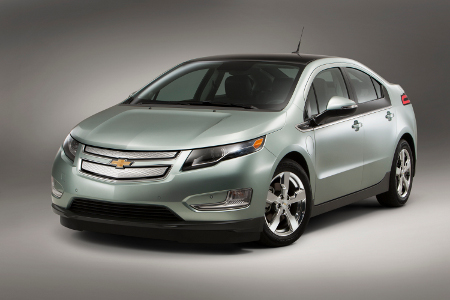By Deron Lovaas, NRDC
I just read a fascinating book called Reinventing the Automobile. It’s a look at the future of personal mobility, which is developing into a major issue as more of the world’s population moves into congested urban areas. This trend is actually a huge opportunity for the auto industry to reinvent the car as a solution for the city driver, who doesn’t need to go very far very fast, but rather, needs a small, efficient, intelligent vehicle that can navigate crowded conditions.
The writers, an MIT professor and two industry experts, envision a future where cars are designed around their wireless communication abilities and electric drive systems, rather than big, gas-guzzling engines. They can communicate with other cars and roads through a “mobility internet,” and of course, recharge whenever and wherever they need to through a smart electric grid powered by clean, renewable energy. This transportation infrastructure would be supported by dynamic pricing structures for electricity, parking and tolls – meaning prices would adjust according to demand. And shared vehicles, like the Zipcar model, would play a critical role in the urban transportation network.

Most of us aren’t quite ready to give up total control of our vehicles, like in Minority Report. But automakers are already offering vehicles equipped with a slew of driver assistance technologies, which are popular safety features. Many new luxury and mid-priced cars can parallel park themselves, automatically adjust cruise control speeds, and monitor blind spots. Others use technologies that can avoid collisions by hitting the brakes or taking control of the wheel.
As our driving population gets older and more urbanized, I think we’ll see more vehicle technologies that take over routine driving tasks. But when it comes to smart roads, we’ve barely begun to make use of Intelligent Transportation Systems, which can improve safety and traffic flow by means of electronic communication between roads and vehicles. Electronic tolling is becoming common, and San Francisco is testing outparking meters that can “talk” to drivers looking for spots. But we can’t hold a candle to places like Japan, where roadside sensors at about 1,600 locations throughout the country help drivers with merging, warn them about stopped or slow vehicles ahead, or provide real time traffic information to help drivers avoid congestion. Japan plans to install this Smartway system nationwide. In the absence of a strong federal transportation program, it’s hard to see how we can develop a similarly advanced transportation network in the United States anytime soon.
But smart people in this country are thinking about it. Just last week I participated in a forum with some of them in Denver, hosted by the National Renewable Energy Laboratory or NREL. We gathered to discuss the “Sustainable Future of U.S. Transportation,” and the group included auto and energy industry reps as well as an interesting assortment of innovative thinkers including someone from Google, from the Utah Transit Authority (John Inglish, who gave a brilliant presentation at a Mobility Choice conference I helped organize last year) and from CalCars. To my delight, Chris Borroni-Bird of GM, co-author of Reinventing the Automobile, was also there.
It was a fascinating, far-ranging discussion of the challenges and opportunities on the road ahead. The group covered sobering problems with achieving social, economic and environmental sustainability in our transportation system. I’m happy to report that the debate – which got heated at times – included widespread recognition that public policy can provide helpful tools for getting there, and that there is ample reason to be optimistic about technological innovation and entrepreneurial activity in the private sector.
I’ve often said we’re going to be driving cars for the foreseeable future. But maybe the cars will be driving us too!
![]() Editor’s Note: This column comes to us as a cross post courtesy of NRDC. Author credit goes to NDRC Federal Transportation Policy Director Deron Lovaas.
Editor’s Note: This column comes to us as a cross post courtesy of NRDC. Author credit goes to NDRC Federal Transportation Policy Director Deron Lovaas.